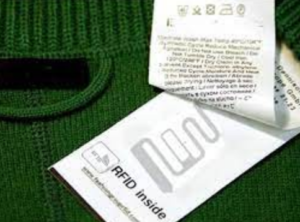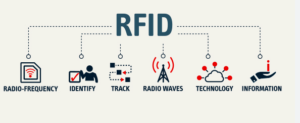In the modern hotel industry, efficient linen supply and tracking management have become crucial tasks. To address this challenge, RFID (Radio Frequency Identification) linen tags have been widely adopted as a transformative technology, bringing about revolutionary changes. This article will explore the application of RFID linen tags and analyze their advantages and potential impact in the hotel industry.
RFID linen tags are intelligent tags that utilize radio frequency identification technology and can be attached to various types of hotel linens, such as bed sheets, towels, and bathrobes. By associating the tags with the linens, hotel managers can easily track and manage their usage, cleanliness, and inventory status.

RFID Textile Tag 2
RFID tags offer several advantages in hotel linen management. Firstly, the unique identification code provided by the tags ensures that each linen item has a distinct identification, reducing the risks of loss and mixing up linens. Secondly, RFID technology enables fast and contactless reading, making linen counting and inventory management more efficient and accurate. Hotel staff only need to scan the linens with an RFID reader to retrieve detailed information such as linen type, size, and usage records. This simplifies the linen management process and improves work efficiency.
Moreover, RFID linen tags can enhance the quality and efficiency of room cleaning in hotels. By installing tags on the linens, housekeeping staff can quickly and accurately check the cleanliness of each item, ensuring compliance with hygiene requirements. Additionally, the tags can record the cleaning history and maintenance records of the linens, providing comprehensive data to hotel managers regarding linen usage and maintenance, enabling better decision-making and planning.

RFID Textile Tag 1
In addition to linen management, RFID tags have other applications in the hotel industry. For instance, during the guest check-in process, hotels can utilize RFID technology for quick room access control. Guests only need to bring their room card or RFID-enabled devices such as smartphones close to the door lock for convenient unlocking, enhancing the overall guest experience. Furthermore, hotels can employ RFID tags for item tracking and management, such as conference equipment, minibar inventory, and luggage, improving operational efficiency and reducing losses.
In conclusion, RFID linen tags have revolutionized the hotel industry by enabling intelligent management of linen supply and tracking. With their unique identification capabilities, contactless reading, and detailed data collection, these tags offer improved efficiency, accuracy, and customer satisfaction. As hotels embrace RFID technology, they can enhance their linen management practices and provide an elevated experience for their guests.












